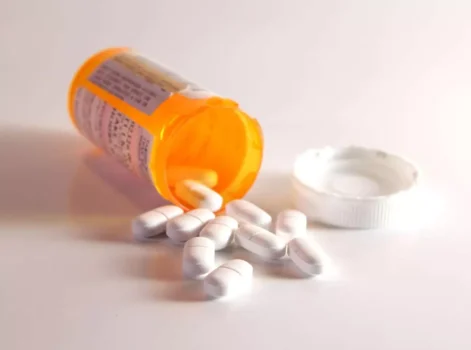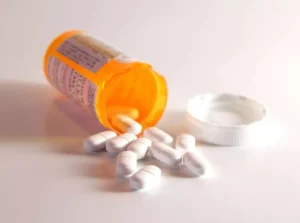
Chronic alcohol use can lead to liver damage, impairing the liver’s production of clotting proteins. This can result in a higher tendency for bleeding and difficulty in clot formation. Additionally, alcohol abuse can contribute to vitamin deficiencies, particularly vitamin K, which plays a crucial role in blood coagulation. While moderate alcohol consumption may have some minimal impact on blood clotting, it is not recommended to rely on alcohol as a reliable blood thinner. If you have concerns about blood clotting or are taking medications that affect blood thinning, it is important to consult with a healthcare professional for personalized advice.

Hydroxyzine Addiction: Exploring the Hidden Risks
Detoxing from opioids at home can offer privacy and comfort but carries serious risks, so it’s essential to consult a medical professional and have a solid support system in place for safety and success. By prioritizing a healthy lifestyle and seeking professional help when necessary, individuals can take proactive steps towards maintaining a healthy circulatory system and overall well-being. Remember, it’s never too late to make positive changes and prioritize your health. Having more than three alcoholic beverages a day can put you at a higher risk of hemorrhagic stroke. If your brain starts to bleed and your blood has been thinned by too much alcohol, it may not be able to clot before you lose too much blood and hemorrhage.

Alcohol and Its Impact on Blood Thinning: Navigating the Risks
When a blood clot forms in a vein, it can block the flow of blood as it travels back to the heart. This causes blood to accumulate behind the clot and build up pressure, resulting in the sort of pain and swelling that Ridler experienced in her leg. People vary in their response to alcohol due to factors such as genetics, body weight, metabolism, and overall health.
How Does Alcohol Impact Blood?
- Yes, moderate alcohol consumption may have a protective effect against heart disease.
- Excessive alcohol consumption can also have a paradoxical effect on the cardiovascular system.
- Working with an addiction specialist to safely detox from alcohol and then get behavioral treatment through rehab is the best process for ending AUD and other forms of problem drinking.
- This may lower your risk for the type of strokes caused by blockages in blood vessels.
- The results suggest that it does this by enhancing the gut microorganisms’ production of indole-3-propionic acid, which then affects clotting.
Anticoagulants (warfarin, heparin and a newer class of drugs called direct oral anticoagulants) work by interfering with proteins involved in the clotting process. Someone who has a higher risk of blood clots due to another health condition, such as atrial fibrillation, may be prescribed an anticoagulant. Overall, researchers saw distinct benefits related to intermittent fasting.

In this section, we will explore the relationship between alcohol and blood thinning, focusing on whether alcohol actually thins the blood and its impact on blood clotting. Yes, certain medications, such as anticoagulants (blood thinners), can interact with alcohol and increase the risk of bleeding. It is important to follow medical advice and guidelines concerning alcohol consumption while taking any medications. Excessive alcohol consumption can disrupt normal blood clotting mechanisms, leading to an increased risk of blood clots.
Can drinking alcohol increase the risk of blood clots?
For each AI patient, 4 non-AI comparisons were randomly selected from the pool of participants without AI, DVT, or PE at the baseline, and frequency matched by the year of index date, age (every 5-years span), and sex. This would provide an equal probability to each AI patient of being assigned to the non- AI cohort. The NHIRD is a computerized database that contains the claims data of people Drug rehabilitation insured by Taiwan’s National Health Insurance (NHI) program. Personal identification information in the NHIRD is scrambled before being released to protect the privacy of patients and healthcare providers. This study was approved by the Institutional Review Board of China Medical University (CMUH-104-REC2–115). If you drink too much or are concerned about how much you drink, you should speak to a physician about lowering your alcohol intake or getting treatment through a rehabilitation program.
- These pills are also easier to take because people don’t need routine blood tests and don’t need to restrict their diets, Ko says.
- These factors can significantly influence how alcohol affects the circulatory system.
Factors to Consider
Seeking professional help from a rehab can provide a safe and supportive environment for detoxification and treatment, as well as therapy and counseling to address the root causes of addiction. If you choose to continue drinking alcohol, moderation is key to minimizing the risks of blood thinning. It’s important to stick to the recommended levels of alcohol consumption and to avoid excessive drinking or binge drinking. If you’re on blood-thinning medication, it’s important to seek medical advice before drinking alcohol to understand the potential risks and receive guidance on safe alcohol consumption.
- But in people who drink heavily, there can be a rebound effect in which the bleeding risk increases, even after they’ve stopped drinking.
- Moderate alcohol consumption is defined as up to one drink per day for women and up to two drinks per day for men.
- Doing this can increase the risk of severe bleeding due to an accident or injury.
- If we are light to moderate drinkers, however, our blood goes back to normal after we stop drinking.
A scab that forms after you get a cut, for example, is a type of blood clot. Hip or knee replacement increases the risk of clots forming in veins of the leg. Blood thinners may be given for a short period to patients recovering from these procedures, often before they can get up and walk around. Warfarin wears off slowly, which is why if you are blood thinners and alcohol having a procedure or an operation, you may be asked to stop the drug several days beforehand. Some patients require coverage with another medication when they stop warfarin, especially if they are at higher risk for clots.

Can intermittent fasting reduce heart disease risk?
While part of this research included people, it also used mice, meaning that more research is needed to fully understand the impact on people and whether it indeed compares to the results found in mice. Further analysis of mouse platelets also suggested that IPA acts on a specific platelet component called the pregnane X receptor to have its effect on platelet activation. Findings from human and mouse samples suggested that the effect of IPA on platelet activation is also related to pregnane X receptor signaling pathways. Opioid detox is a physically and emotionally grueling process with symptoms like muscle pain, nausea, anxiety, and insomnia, but with the right support, recovery is possible. You’ll meet millions of fellow Reframers in our 24/7 forum and daily Zoom check-in meetings. Receive encouragement from people worldwide who know exactly what you’re going through!